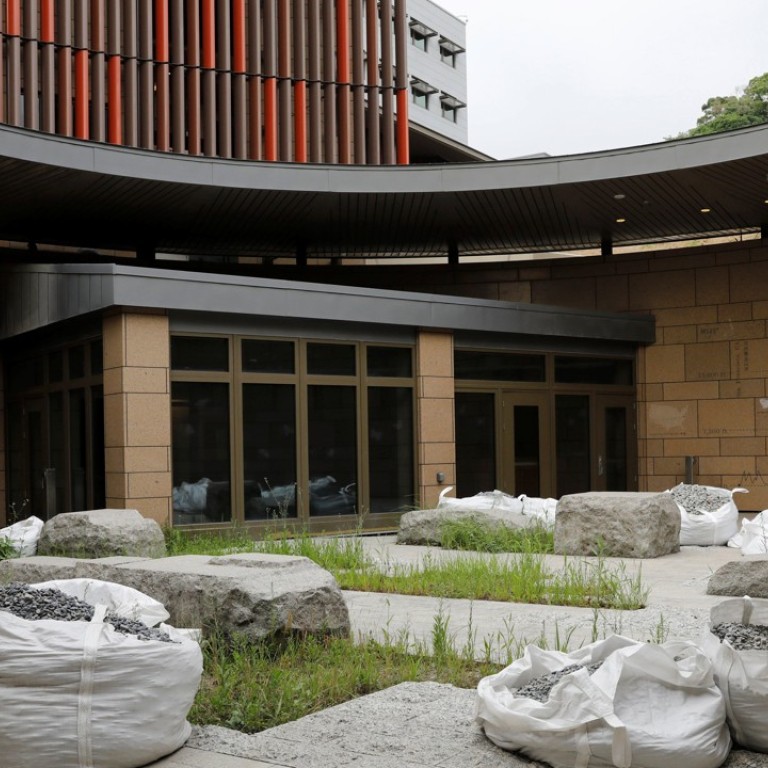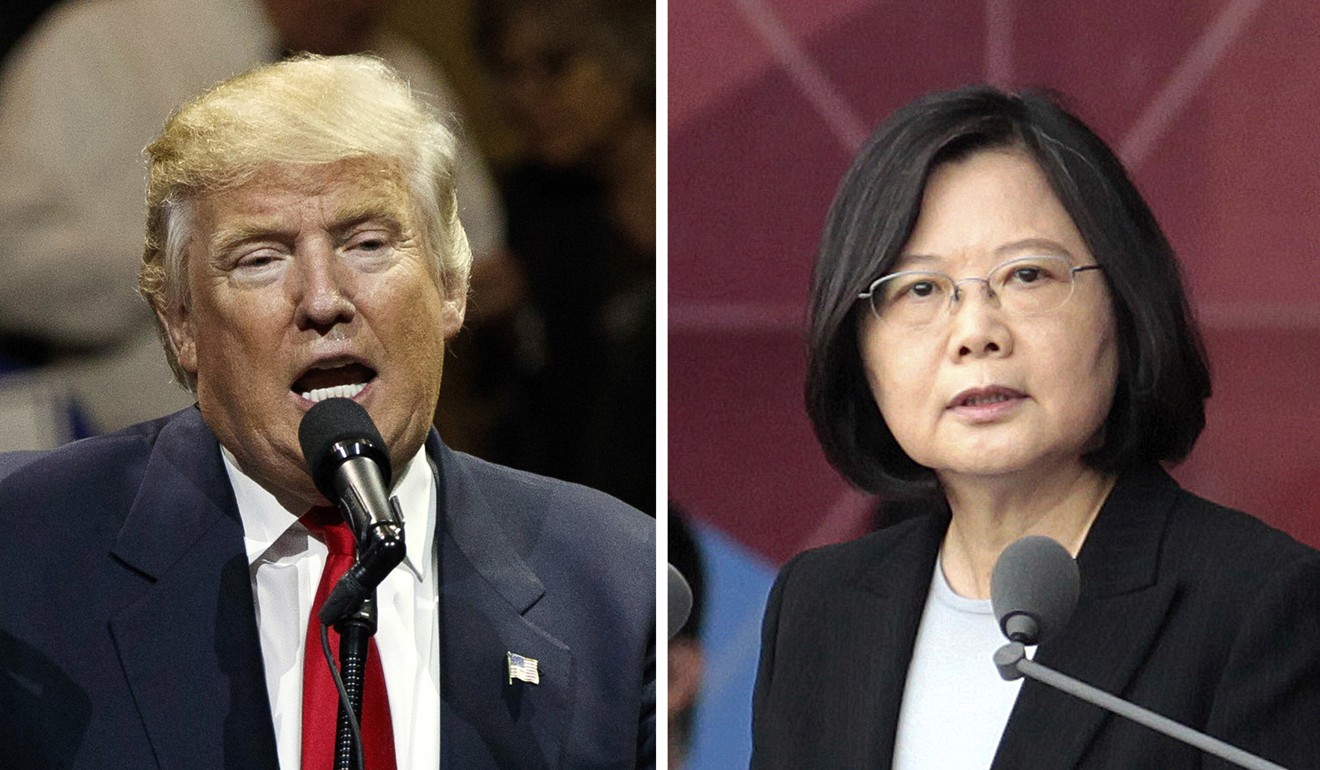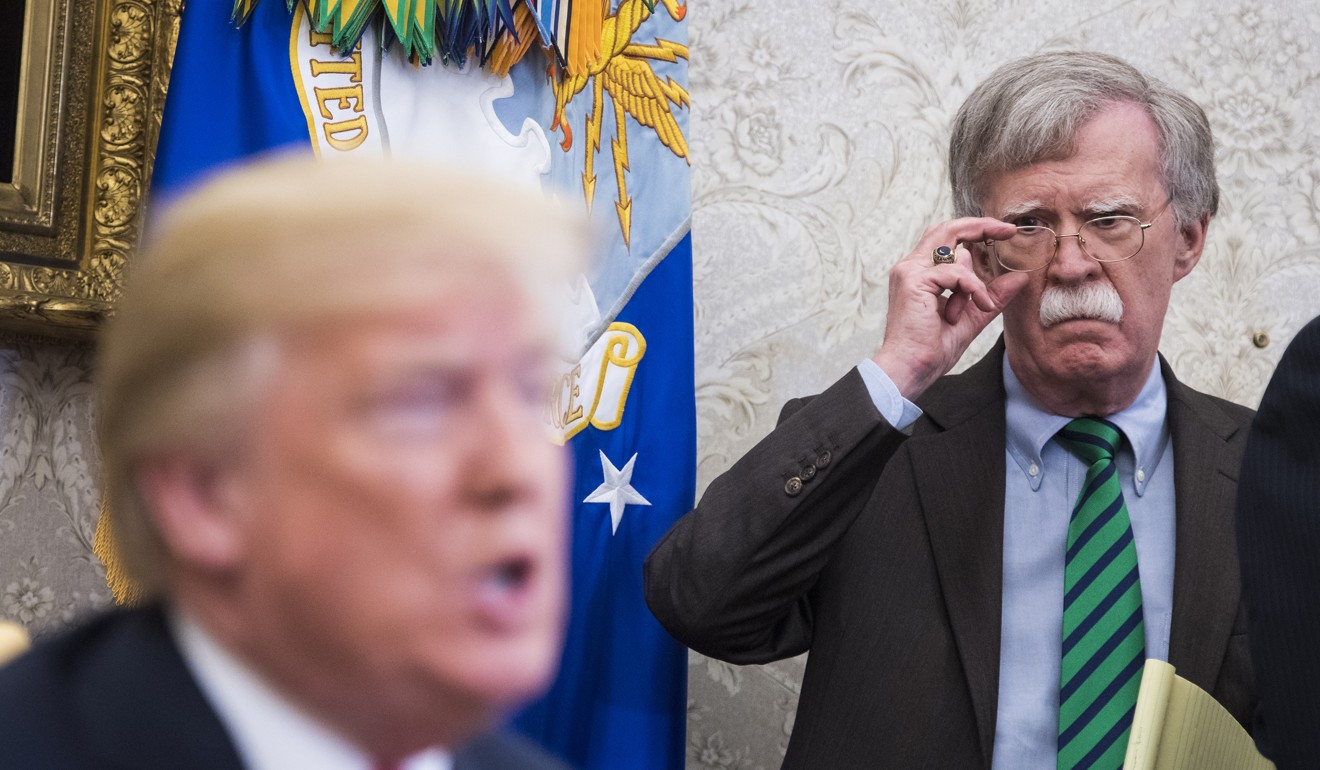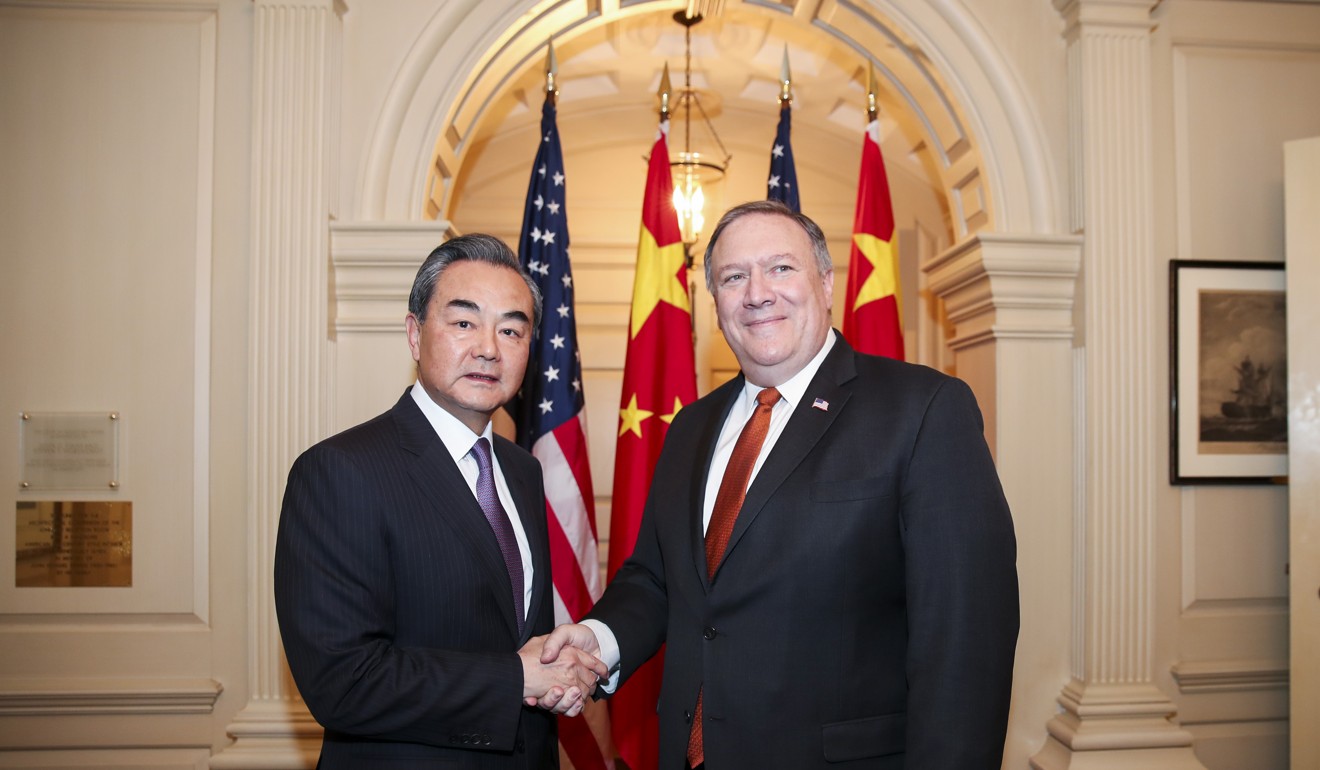
To avoid Bejing’s ire, Donald Trump won’t send high-level officials to opening of de facto embassy in Taiwan
American Institute in Taiwan, unofficial US embassy in Taipei, opens new offices on June 12, but Trump administration representatives will stay away, sources said
When the American Institute in Taiwan – the unofficial US embassy in Taipei – opens its new offices on June 12, the Trump administration will refrain from sending any cabinet-level officials to the ceremony, three sources have told the South China Morning Post.
That message was conveyed by US Treasury Secretary Steven Mnuchin to his Chinese counterparts – including Vice-Premier Liu He – during trade negotiations in Beijing in May, one of the sources said.
Mnuchin assured the Chinese side that no cabinet-level official would attend the ceremony, this source said, adding that the Taiwan issue was discussed separately from recent trade talks.
The sources, who have ties to both the American and Chinese governments, spoke on condition of anonymity because they were not authorised to discuss the Trump administration’s plans.
The American Institute in Taiwan (AIT) is a non-profit organisation financed by the US government that acts on its behalf, and has maintained unofficial ties with Taiwan since 1979, when the United States severed diplomatic ties with the island as part of its recognition of the People’s Republic of China.
The AIT event would constitute the rare occasion a high-level US official might attend, but such a visit might anger China and lead it to take strong action in response – even, one source suggested, the expulsion of the US ambassador from Beijing.
Taiwan event creates headaches for Trump amid North Korea talks
There has been speculation that the US would send a representative to the ceremony, especially since the US seems to be revisiting its relations with Taiwan during the Trump administration.
In an early affront to China, Donald Trump, after winning election to the presidency in 2016, took a congratulatory telephone call from Taiwan’s President Tsai Ing-wen – a call believed to be the first time a US president or president-elect had spoken to a Taiwanese leader since at least 1979.
Just this year, the US Congress unanimously approved and Trump signed into law the Taiwan Travel Act, allowing officials at all levels of US government – including cabinet-level officials – to travel to Taiwan.

Since then, Taiwan has become an issue of increasing sensitivity in Sino-US talks and China has warned the US to back off from any official exchanges. Beijing regards the self-ruled island as a wayward province, to be brought under its rule by force if necessary.
Speculation had been growing that the Trump administration might dispatch National Security Adviser John Bolton to the AIT ceremony to demonstrate the US’s standing by the island ally.
Bolton has advocated elevating ties between the US and Taiwan, calling on the US to “revisit the one-China policy” and suggesting that the Shanghai Communiqué of 1972 be renegotiated. In that declaration, issued after President Richard Nixon returned from his trip to China, the US agreed to acknowledge that “there is but one China and that Taiwan is a part of China”.
US senator meets Taiwanese president in show of support
“Let us see how an increasingly belligerent China responds,” Bolton wrote in an opinion essay he wrote for The Wall Street Journal in January.
But China would regard the US national security adviser in Taipei as a provocation, another source said: “If Bolton goes, China will respond strongly to demonstrate that the Taiwan issue is not negotiable.”
This source warned that China could fight back by “kicking the US ambassador to China Terry Branstad out of the country”.
“If some people in the administration think they can move forward to normalise ties with Taiwan and China will not respond,” the source added, “that is a problematic illusion”.

The source said that there remains the possibility that someone like Donald Trump Jnr, Trump’s eldest son, might attend the ceremony – someone without any official Washington status but with strong ties to the White House.
Spokesmen at Trump’s National Security Council and at Taiwan’s Taipei Economic and Cultural Representative Office in Washington did not immediately respond to requests for comment.
The AIT ceremony comes as relations between China and Taiwan have grown increasingly fractious.
Across the Taiwan Strait, China has been tightening a pressure campaign against the independence movement in Taiwan by conducting military exercises around the island and continually squeezing its diplomatic allies.
Taiwanese aircraft tail Chinese bombers on flight around island
Tsai said in late May that Taiwan would “no longer tolerate” Beijing’s actions but “will be more determined to reach out to the world” after two of its foreign allies, Burkina Faso and Dominican Republic, switched recognition to China in a month.
The US State Department criticised China of “altering the status quo across the Taiwan Strait” in a statement regarding to Burkina Faso’s switch of diplomatic allegiance.
“China is trying to change the status quo by a variety of means,” Michael Fonte, a US representative of the Taiwan’s current ruling Democratic Progressive Party (DPP), told the Post.
Asked if recent actions by the US Congress weren’t a provocation, he said, “I don’t think the Taiwan Travel Act changes the status quo.”
Fonte said that previous visits by US cabinet-level members to Taiwan had set the precedents for the Trump administration to do so.
In 1992, US President George H.W. Bush’s US trade representative, Carla Hills, became the first cabinet-level official who paid an unofficial visit to Taiwan since 1979. Later administrations also sent representatives of that level.
However, Fonte said the status quo is changing dramatically as China is now “a much stronger country politically, economically and militarily”, which also “changed the context of US-Taiwan and Taiwan-China relations”.
Taiwan ‘will no longer tolerate Beijing’s actions’
China has urged the US to avoid having official contacts with Taiwan or improving relations with the island in substantive ways, according to the Chinese Foreign Ministry.
Chinese Foreign Minister Wang Yi reiterated that the one-China principle “touches upon the political foundation of China-US relations” during a joint news conference with US Secretary of State Mike Pompeo after their first face-to-face meeting in Washington on May 23.
“We would urge the US to honour the one-China principle and the stipulations in the three Joint Communiques and prudently and properly manage Taiwan-related issues to uphold the overall interests of China-US relations and peace and stability across the straits,” Wang said.

Ruan Zongze, a former minister counsellor for political affairs at the Chinese embassy in Washington, told the Post that China will do “whatever it can” to defend the one-China principle.
“China has no interest in backing off,” he said.
The US seems to be preparing for further showings of support to Taiwan. The US Department of Defence is considering sending a warship through the Taiwan Strait after a series of Chinese military drills around the island, according to a Reuters report on Monday.
US ‘considering sending warship through Taiwan Strait’
The tensions in the Taiwan Strait raises concerns about the Taiwan issue emerging as a trigger for a potential conflict between the US and China, a source cautioned.
In such a scenario, the source warned that “the State Department will be in a role of restraint while the Pentagon may take the initiative”.
DPP representative Fonte believes the “soured” US-China relationship has created “a very different edge” to the discussion of revisiting US-Taiwan policy under the Trump administration.
“The weakening of US-China relations has given space for people here [in Washington] who are already positive about Taiwan to increase their conversation about it,” Fonte said.
Representative Rick Larsen, a Democrat from Washington state who is co-chairman of the House’s US-China Working Group, has heard the talk about improving US-Taiwan relations.
Larsen voted for the Taiwan Travel Act, which passed both the House and Senate without opposition and was signed into law by Trump in March.
“There are some members of the Congress who understand the one-China policy but don’t want to be that way,” Larsen said in an interview with the Post, “They want a separate full relationship with Taiwan.”
“But I don’t see the US reversing its one-China policy,” Larsen said, “We should continue to pursue that one-China policy.”

